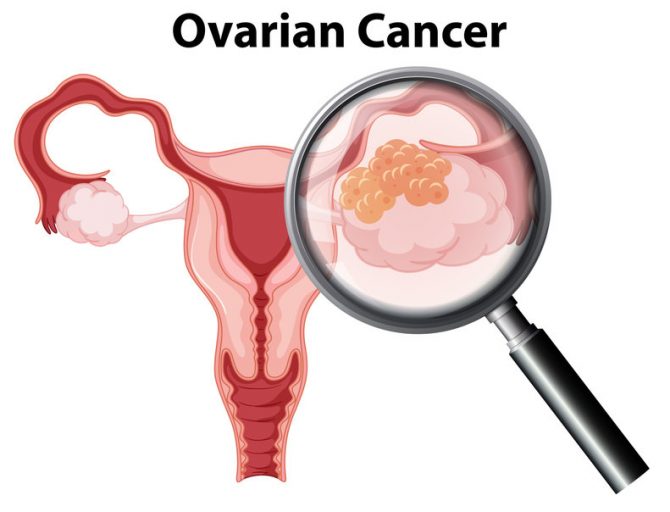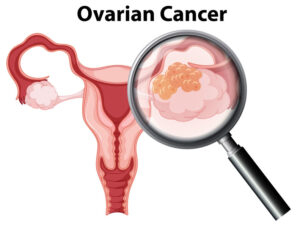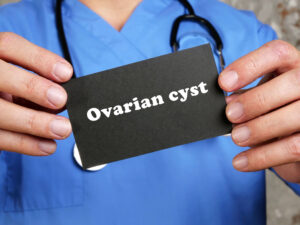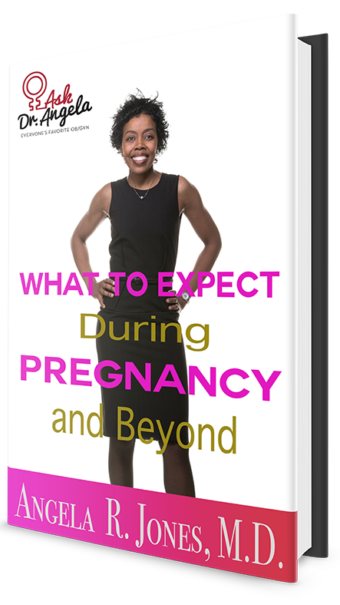How to Prevent Ovarian Cancer
There is no sure-fire way to prevent ovarian cancer. However, there are ways to reduce your risk.
Factors that have been seen to reduce the risk of ovarian cancer include:
- Pregnancy and breastfeeding. If you have carried a full-term pregnancy before 26 and breastfed your baby, this reduces the risk. The risk goes down further with each full term of pregnancy.
- Birth control pills. Females who use birth control pills have a reduced risk of ovarian cancer.
- Bilateral salpingectomy. Removal of fallopian tubes instead of performing tubal ligations, more commonly known as “getting your tubes tied,” has become standard practice as multiple studies suggest that the precursors for ovarian cancer start in the fallopian tubes.
- Diet high in vegetables and low in fat. Not all studies agree that this type of diet will reduce the risk, however, a lifestyle of healthy eating and exercise pays dividends across the board outside of cancer prevention. Such reduces the risk of medical conditions such as obesity, diabetes, high blood pressure, and other comorbidities that could ultimately increase your risk of cancer.
- See your doctor. If you have a family history of ovarian and/or breast cancer, your doctor may require that you carry out some genetic screening. If it’s confirmed you have inherited mutated genes (cancer-causing genes), you may choose to have surgery early on to remove your ovaries and prevent ovarian cancer.
Conclusion
Ovarian cancer is called the silent killer because by the time it’s diagnosed, it’s usually at an advanced stage.
I advise women to know their bodies. If you’re experiencing symptoms that are out of the ordinary, see a doctor. If you have a doctor that isn’t taking you seriously, see someone else.
Don’t wait it out on your own.
The good news is – women are defeating ovarian cancer every day. Early diagnosis and immediate treatment are key.
I hope this post has answered your many questions regarding ovarian cancer.
Do you have questions? Ask. Also, check out the FAQs below.
Are you an ovarian cancer survivor? Please share your story.
Until next time,
Choose happiness.
Dr. Angela.
FAQ
PCOS is a hormonal disorder that affects women in their childbearing years. It is usually characterized by high levels of androgen (male hormones), irregular periods, and cysts on the ovaries.
Ovarian cancer is the growth of cancerous tumors on the ovary.
The cysts associated with PCOS are usually non-cancerous. Some studies claim that having PCOS may increase the risk for ovarian cancer. This claim has not been verified yet.
Ovarian cancer can affect your menstrual cycle. This could be missing some periods or experiencing heavy bleeding.










